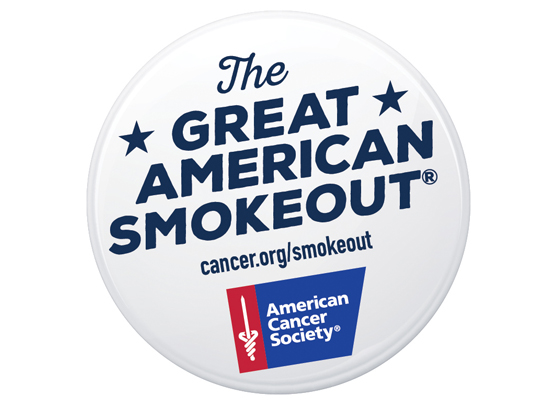Nov. 15’s Great American Smokeout: Opportunity for PLWH Who Smoke to Make a Plan to Quit & Reduce Major Health Risk

Thursday, November 15, is the Great American SmokeoutExit Disclaimer. The annual observance is organized by the American Cancer Society on the third Thursday of November to encourage smokers to use the date to make a plan to quit, or to plan in advance and quit smoking that day. Since smoking is a significant health risk among people living with HIV, the Great American Smokeout is a great opportunity to educate smokers living with HIV—and their friends, families, and care providers—about the benefits of quitting smoking.
Learn and Share the Facts
Today, people living with HIV who are diagnosed early, start HIV medical care and treatment, and achieve and maintain viral suppression are expected to live nearly as long as their HIV-negative peers. As a result, the causes of death among people living with HIV have shifted from AIDS-related to non-AIDS-related causes.
Smoking has become one of the key health risks among people living with HIV contributing to those non-AIDS-related causes of death. Smoking increases the chances of heart disease, cancer, serious lung diseases and infections, which are all conditions that those living with HIV are more vulnerable to developing.
Quitting smoking has major and immediate health benefits for all tobacco users, including those living with HIV/AIDS. Quitting reduces your chances of developing disease, helps you feel better, and improves your quality of life. In fact, quitting smoking may be one of the most important steps toward better health that a person living with HIV can take.
To learn more, start with HIV.gov’s recently updated page on Smoking and HIV.
- Study: PLWH Who Smoke Up to 13 Times More Likely to Die from Lung Cancer than AIDS
- HIV and Smoking: A dangerous cocktail
Feeling inspired? People who smoke, including people living with HIV, can and do quit and there are many evidence-based interventions that can assist those who wish to do so. Tips for developing a plan to quit smoking are available from NIH’s Smokefree.gov. U.S. residents who want to learn more about tobacco treatment services can call 1-800-QUITNOW to connect to their state's smoker's quitline.